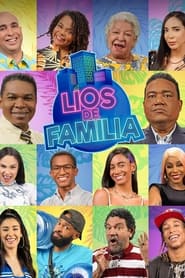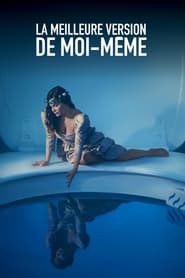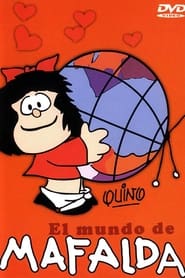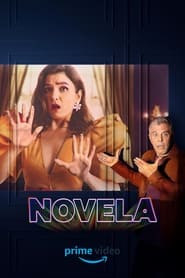Top Rated Comedy TV Series on Tub Tv - Page 311
-
Líos de Familia
2022
Líos de Familia
2022
star 6.9The colorful lives of neighbors in a middle-class apartment building in Santo Domingo. -
How We Roll
2022
How We Roll
2022
star 5.4Stoic Midwest husband and dad, Tom gets laid off from a car assembly line and makes the extraordinary decision to provide for his family by following his dream of becoming a professional bowler. Tom begins his new career with the loving okay from his wife, Jen the unfaltering support of Archie, his mentor and the proud owner of Archie’s Lanes: Home of the Curly Fry, the cautious backing of his protective mom, Helen, and the encouragement of his son, Sam. -
Erkek Severse
2022
Erkek Severse
2022
star 8.3Zeynep who lives with her twin children, is divorced from Oktay whom she married with great love during her university years, because she was cheated on. Zeynep loses her faith in men and closes her heart to love. Until he met Kenan Yelda is one of the women after Kenan and she intends to carry on the business partnership they have just started with Kenan to marriage. -
Lov3
2022
Lov3
2022
star 5.8Siblings Ana, Sofia and Beto try to outrun conventional relationships, like their parents' 30-year-long marriage, which has just come to an abrupt end. -
Teppen!!!!!!!!!!!!!!! Laughing 'til You Cry
2022
star 6.6Yayoi Sakamoto, a diehard fan of comedians and comedy acts, enrolls in the private Kazuki High School in Nanba (Osaka's entertainment district famous as the starting point for many comedians). She reunites with Yomogi Takahashi, a childhood friend who once formed the comedy duo "Konamonzu" with her when they were little. Before long, they find themselves putting together a routine at a park like they did before, in order to enter a local shopping area's contest. At that moment, a mysterious girl calls out to them. -
Dr. Park’s Clinic
2022
Dr. Park’s Clinic
2022
star 7.7Since young, Dr.Park worked and studied really hard to become a successful doctor. After he gets the license, he opens a clinic of his own, but struggles between the art of medicine and his business ability in a clinic without patients. -
Phantom of the Idol
2022
Phantom of the Idol
2022
star 8.3Yuya is part of the idol duo ZINGS, but his laziness and disdain for fans puts him in danger of getting blacklisted. That is, until he meets Asahi, the ghost of a former idol who’s eager to stage her own comeback by possessing Yuya's willing body! -
My Heroic Husband
2023
My Heroic Husband
2023
star 7In an alternate reality, the commercial elite known as Yining migrated to the Wu Dynasty and took the surname Ning and the given name Yi. Yining just concealed his well-known business skills in the virtual world since he had always dreamed of becoming a generation of martial arts superstars. Unexpectedly, the world's morals are more complex than he anticipated. In addition to being involved in significant legal proceedings after becoming Ning Yi, the Su family he joined was also in danger from formidable foes. -
Fabulous Beasts
2023
Fabulous Beasts
2023
star 8.9"Fabulous Beasts" shares the same world view as other works in the "Non-human" series. The characters are inspired by Pixiu and other Chinese traditional mythical beasts, with modern elements added to make the characters different from other humanoid animation. The cute and lively "beasts" design plus casual comedy let the audience in this high-strung society relax and warm their hearts. -
La Meilleure Version de moi-même
2021
star 5.9Desperate to deal with a chronic digestive problem, stand-up comedian Blanche Gardin decides to consult a naturopath, who explains that her self-mockery on stage is sending her brain a negative message about herself. Blanche accepts this diagnosis with the faith of a new convert, decides to give up humor and embarks on the road to personal development. -
The Game
2021
The Game
2021
star 7.4Relocating from San Diego to Sin City, a mix of new players and original cast offer a modern-day examination of Black culture through the prism of pro football. The team tackles racism, sexism, classism and more as they fight for fame, fortune, respect and love – all while trying to maintain their souls as they each play the game. -
Bad Signal: The Series
2021
star 7.3Entrusted by her sister, Tante Maya brings her trusted but rustic employees, Yos and Melki, from Sumba to manage a hotel in Anyer. She is also tasked to choose the new manager from among the three senior employees, Oci, Sudung and Randi. The previously well-run hotel runs into problems when the employees compete for Tante Maya's attention and approval. -
ONLY JUST MARRIED
2021
ONLY JUST MARRIED
2021
star 627-year-old Akiha Ōkado, who vows to stay single, gets a proposal to enter into a fake marriage from 30-year-old Shū Momose, who wants to get the status of a married man for some reason. Through living together as a fake couple, their relationship gradually changes. -
The Big Moment
2021
The Big Moment
2021
star 7.6Estranged ex-lovers, Kostya and Kira are unexpectedly thrown together again when they're asked to collaborate as script-writers on a love-story set in a music school. The script focuses on teachers Rostislav (Dmitry Lysenkov) and Arina (Evgeniya Borzykh), who are caught-up in a difficult situation, made more complicated by Arina passing off a new colleague as her boyfriend to placate her demanding mother. The real and phoney relationships, both on and off-paper (or in reality or in the script), test all the characters, and examine themes of love, trust, sex, infidelity, friendship, responsibility as well as compatibility. -
Mafalda
1973
-
Improvisation
2016
-
Labyrinth of Flames
2000
Labyrinth of Flames
2000
star 6.4Meet Galan, a Russian spastic geek who`d do anything to be a real, live samurai. But that`s just an impossible dream... or is it? When his friend Natsu, who is a successor of Japanese emigrants family, gives him the gift of an ancient sword, strange events unfold, and even stranger people drop out of the sky to attack. Now Galan must overcome his ineptitude and join a bunch of beautiful women in a wacky romp through a kingdom that time forgot. Hey, what could be better? -
Soap Opera
2023
Soap Opera
2023
star 6.6Isabel is a promising screenwriter who has dedicated her life to become a writer for a hit telenovela. When she finally gets her chance, her mentor Lauro Valente betrays her. At the premiere, Isabel decides to confront him and magically ends up in his telenovela as the main character. From the inside, she will be able to prove her creativity. -
Ultra Violet & Black Scorpion
2022
star 7.4Violet Rodriguez, an everyday Mexican American teen, is chosen by a magical luchador mask which transforms her into Ultra Violet, a superhero fighting crime alongside her luchador uncle, Cruz, also known as Black Scorpion.
 Netflix
Netflix
 Amazon Prime Video
Amazon Prime Video
 Apple iTunes
Apple iTunes
 Apple TV Plus
Apple TV Plus
 Disney Plus
Disney Plus
 Google Play Movies
Google Play Movies
 Paramount Plus
Paramount Plus
 Hulu
Hulu
 HBO Max
HBO Max
 YouTube
YouTube
 fuboTV
fuboTV
 Peacock
Peacock
 Peacock Premium
Peacock Premium
 Amazon Video
Amazon Video
 The Roku Channel
The Roku Channel
 AMC+
AMC+
 Kocowa
Kocowa
 Hoopla
Hoopla
 The CW
The CW
 Vudu
Vudu
 Starz
Starz
 Showtime
Showtime
 PBS
PBS
 Pantaflix
Pantaflix
 FXNow
FXNow
 Tubi TV
Tubi TV
 Kanopy
Kanopy
 Comedy Central
Comedy Central
 Crunchyroll
Crunchyroll
 Microsoft Store
Microsoft Store
 Redbox
Redbox
 Sun Nxt
Sun Nxt
 ABC
ABC
 DIRECTV
DIRECTV
 Crackle
Crackle
 Fandor
Fandor
 Plex
Plex



















